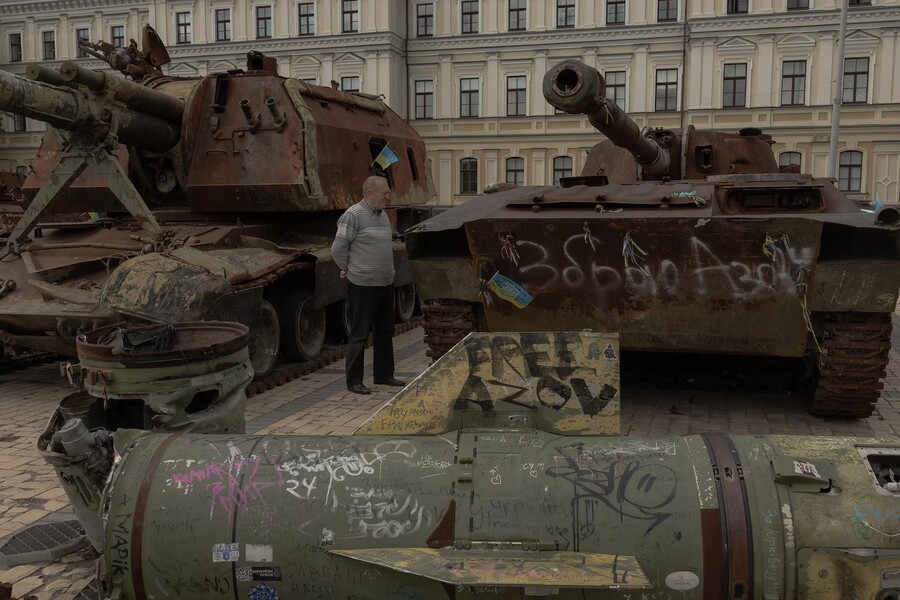Istanbul, Turkey — For the first time since the initial phase of Russia’s full-scale invasion in early 2022, Ukrainian and Russian representatives have convened for direct peace talks in Istanbul, Turkey, on Thursday. The meeting marks a critical moment in the nearly three-year conflict but proceeds without the presence of Russian President Vladimir Putin, who declined an invitation from Ukrainian President Volodymyr Zelenskyy for a face-to-face summit.
The Kremlin confirmed Putin’s absence via spokesperson Dmitry Peskov, underscoring the high-stakes yet cautious atmosphere surrounding the resumption of dialogue between the embattled neighbors.
The choice of Istanbul as a venue is deeply symbolic. In March 2022, the city hosted early negotiations that produced the so-called Istanbul Communiqué, outlining a framework for peace based on Ukraine’s commitment to permanent neutrality — effectively renouncing NATO membership — in exchange for ironclad security guarantees. Those talks ultimately collapsed amid escalations on the battlefield and reports of alleged Russian war crimes.
Beyond diplomacy, Istanbul played a pivotal role as the hub of the Black Sea Grain Initiative from 2022 to 2023. That agreement, brokered with support from Turkey and the United Nations, allowed for the temporary safe export of grain and agricultural goods from Ukraine’s war-threatened Black Sea ports, a vital lifeline for global food markets.
The Russian delegation is led by Kremlin aide Vladimir Medinsky, who helmed the failed 2022 negotiations. He is accompanied by Deputy Foreign Minister Mikhail Galuzin, Deputy Defense Minister Alexander Fomin, and Igor Kostyukov, head of Russia’s military intelligence. Their presence signals Moscow’s intent to pursue talks seriously, although observers remain skeptical.
Ukrainian President Zelenskyy has reiterated that any meaningful talks require direct engagement with Putin himself. “Everything in Russia depends on the president,” Zelenskyy said this week. Though he expressed readiness to meet Putin in Turkey, he indicated no interest in negotiating with other Russian representatives.
On the day of the talks, Zelenskyy was scheduled to meet Turkish President Recep Tayyip Erdogan in Ankara, highlighting Turkey’s continuing role as a diplomatic mediator.
The United States maintains a significant diplomatic presence, with Secretary of State Marco Rubio and senior envoys Steve Witkoff and Keith Kellogg attending the Istanbul talks. Rubio emphasized the critical need for diplomacy over military solutions, stating, “There is no military solution to the Russia-Ukraine conflict. This war is going to end not through a military solution, but through a diplomatic one.”
Former U.S. President Donald Trump, who has actively campaigned for a ceasefire and peace deal, expressed cautious optimism about progress. Speaking from Qatar, he hinted at a possible visit to Istanbul, saying, “If something happened, I’d go on Friday if it was appropriate.” However, Trump also acknowledged Putin’s likely absence, suggesting that if he (Trump) did not attend, Putin probably would not either.
Despite renewed talks, experts remain wary of an immediate breakthrough. Oleg Ignatov, senior Russia analyst at the International Crisis Group, told ABC News, “The Russians clearly say that they’re interested in keeping military and diplomatic pressure on Ukraine… There will be long negotiations, and Ukraine should be prepared for this.”
Meanwhile, Ukrainian Foreign Minister Andrii Sybiha reaffirmed Kyiv’s support for U.S.-led peace efforts, tweeting, “It is critical that Russia reciprocate Ukraine’s constructive steps. So far, it has not. Moscow must understand that rejecting peace comes at a cost.”
Russian Foreign Ministry spokesperson Maria Zakharova stated that Moscow is “ready for serious negotiations,” yet Moscow’s exact intentions remain closely scrutinized amid ongoing hostilities.
The conflict’s roots stretch back to Russia’s annexation of Crimea in 2014 and its support for separatist forces in Ukraine’s Donbas region. The 2022 invasion dramatically escalated hostilities, with Russian forces advancing from occupied territories in Crimea, Donetsk, and Luhansk.
The Istanbul talks, while symbolically important, face an uphill battle. Both Kyiv and Moscow appear keen to avoid blame should negotiations falter, while external actors like the U.S., Turkey, and European leaders continue to push for a peaceful resolution.
The world watches as diplomats meet once more in a city that has long served as a bridge between East and West, hopeful that dialogue might finally pave the way toward an end to the devastating war.
